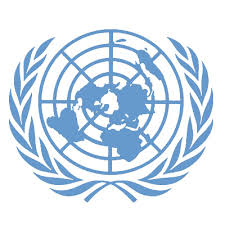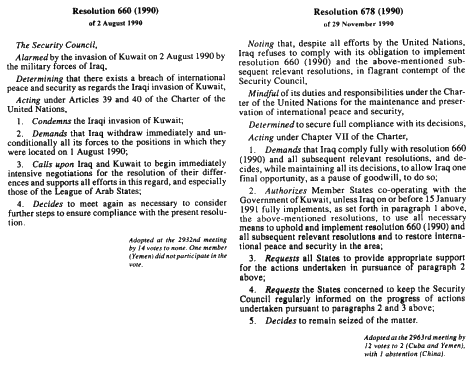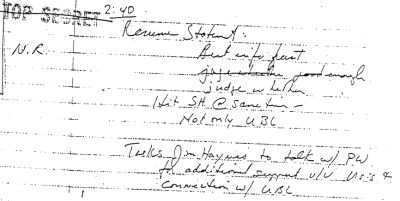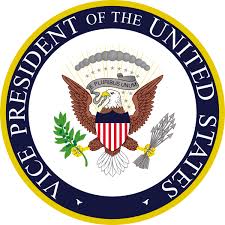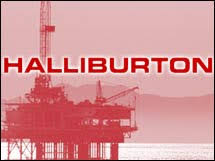Posted on Monday 27 July 2009
-
DoD/OSP: Immediately after 911, Donald Rumsfeld asked Paul Wolfowitz to find al Qaeda/Iraq connections, a task he assigned to Douglas Feith. Feith came up with thirty plus pieces of evidence for that connection, which he then leaked to the Weekly Standard. All of that data turned out to be false. Feith later claimed that his list was hypothetical, designed to show the CIA that they were unwilling to consider State sponsorship of Terrorism.
-
CIA/DoJ: As they began to accumulate al Qaeda captives, John Yoo provided a group of Legal Memos condoning Torture by calling it something else. So high value detainees were tortured looking for al Qaeda/Iraq connections – some at Gitmo and some overseas. They only succeeded in getting one such confession [from Ibn al-Shaykh al-Libi] who later recanted, reporting that he told his interrogators what they wanted to hear in order to keep them from killing him. He recently died in a Lybian prison supposedly from suicide, though many of us suspect he was murdered.
-
The Niger Forgeries: There had been an already debunked set of forged documents alleging the purchase of Uranium by Iraq from Niger. These documents were revived and pushed by the Italian Secret Service [who knew them to be false]. They were the source of Bush’s "sixteen words" in his 2003 SOTUS. By the time of the push for war, the CIA and the UN had certified the documents as forgeries.
-
Ahmad Chalabi and the Iraqi National Congress: Amhad Chalabi supplied all kinds of intelligence [except the true kind]. The Germans interrogated one of his plants, "Curveball," who they didn’t believe – but we used the information anyway. Chalabi and his people were sources for Colin Powell’s speech to the UN and for numerous reporters – notably Judith Miller of the New York Times. When it became clear that Chalabi’s information was fraudulent, he said, "We are heroes in error. As far as we’re concerned, we’ve been entirely successful. That tyrant Saddam is gone and the Americans are in Baghdad. What was said before is not important. The Bush administration is looking for a scapegoat."
-
The Aluminum Tubes: Much ado was made of a shipment of aluminum tubes for rocket housings that we claimed, erroneously, were being used for centrifuging Uranium – a claim refuted by all experts.
-
Fuzzy Math: In Colin Powell’s UN speech, he claimed that Iraq had large quantities of biological weaponry – giving precise numbers. Those numbers were computed by guestimating the amount of material Iraq would have if their plants ran at 100% efficiency and subtracting the amount they found after the Gulf War. After we invaded, it wasn’t found [because it never existed]. Their plants never ran at 100% efficiency.
KEY DOCUMENT 13: The Downing Street Memo was leaked in the Spring of 2005, but got very little Press time in the US. It is the Minutes from a meeting at Number 10 Downing Street in London where the head of the British Secret Service reported on his recent visit to Washington.
 |
| IRAQ: PRIME MINISTER’S MEETING, 23 JULY |
|
This record is extremely sensitive. No further copies should be made. It should be shown only to those with a genuine need to know its contents.
Conclusions:
(I have written separately to commission this follow-up work.) MATTHEW RYCROFT
|
"Military action was now seen as inevitable. Bush wanted to remove Saddam, through military action, justified by the conjunction of terrorism and WMD. But the intelligence and facts were being fixed around the policy. The NSC had no patience with the UN route, and no enthusiasm for publishing material on the Iraqi regime’s record. There was little discussion in Washington of the aftermath after military action."
Note the date – July 23, 2002. So by July, the Bush Administration had already decided to invade Iraq independent of what the UN said. The Casus Belli would be "the conjunction of terrorism and WMD" and "the intelligence and facts were being fixed around the policy." In my way of thinking, this seals the issue for all time. Two months before the public campaign for the war, a British envoy returned to London from Washington to report that "Bush wanted to remove Saddam, through military action" – period. The intelligence was being jury-rigged to fit what he "wanted." All of our upcoming trips to the UN were for show.


 Then came the September 11th, 2001 attack on the Twin Trade Towers in New York, and the country was changed forever. At that point, most of us knew nothing of their designs on Iraq. And we had hardly heard of al Qaeda. But in the Department of Defense, on that day, Donald Rumsfeld questioned whether we should retaliate against Saddam Hussein’s Iraq immediately along with Osama Bin Laden’s al Qaeda. He also tasked Paul Wolfowitz to begin gathering evidence that Saddam Hussein had ties to al Qaeda. When Congress responded by giving President Bush the power to respond against the perpetrators of the attack using our military, in the Department of Justice, Deputy Attorney General John Yoo quickly wrote a secret legal Memo stating that the Authorization for the Use of Military Force passed by Congress also gave the President other powers:
Then came the September 11th, 2001 attack on the Twin Trade Towers in New York, and the country was changed forever. At that point, most of us knew nothing of their designs on Iraq. And we had hardly heard of al Qaeda. But in the Department of Defense, on that day, Donald Rumsfeld questioned whether we should retaliate against Saddam Hussein’s Iraq immediately along with Osama Bin Laden’s al Qaeda. He also tasked Paul Wolfowitz to begin gathering evidence that Saddam Hussein had ties to al Qaeda. When Congress responded by giving President Bush the power to respond against the perpetrators of the attack using our military, in the Department of Justice, Deputy Attorney General John Yoo quickly wrote a secret legal Memo stating that the Authorization for the Use of Military Force passed by Congress also gave the President other powers: